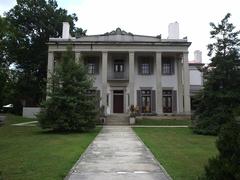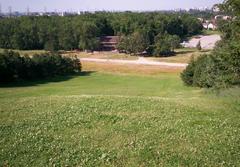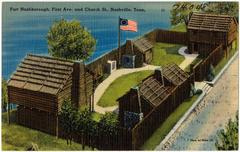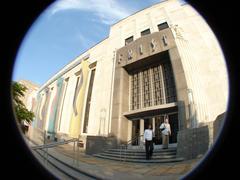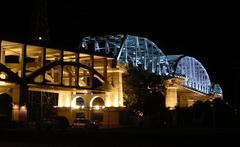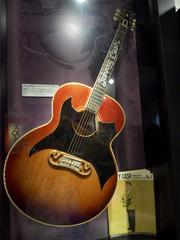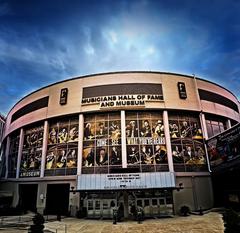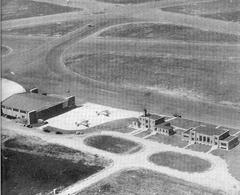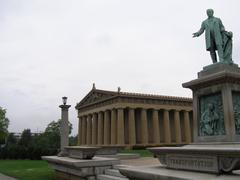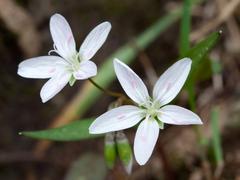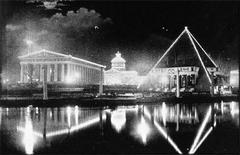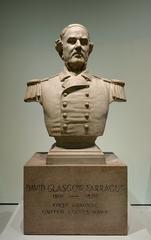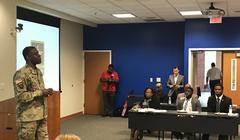
American Baptist College Visiting Hours, Tours, and Nashville Historical Sites Guide
Date: 03/07/2025
Introduction
American Baptist College (ABC) in Nashville, Tennessee, stands as a beacon of faith, education, and civil rights activism. Founded in 1924 by a pioneering interracial collaboration between the National Baptist Convention, USA, Inc., and the Southern Baptist Convention, ABC was established to empower African American Christian leaders during an era of segregation and limited educational access. The college’s 53-acre campus, highlighted by the historic Griggs Hall, has produced transformative leaders such as John Lewis and C.T. Vivian, pivotal in the Nashville sit-ins and Freedom Rides. Today, ABC continues its dual mission—offering rigorous theological education and serving as a living monument to the African American struggle for equality and justice. This comprehensive guide details everything you need to know to plan your visit: hours, tickets, accessibility, campus highlights, photo spots, and nearby attractions, while illuminating ABC’s enduring legacy and role as a Historically Black College and University (HBCU) (American Baptist College History; WPLN; Wikipedia).
Table of Contents
- Introduction
- Founding Vision and Historical Context
- Civil Rights Movement Legacy
- Academic Mission and Evolution
- Social Justice and Contemporary Initiatives
- Historic Campus & National Recognition
- Visiting American Baptist College: Practical Information
- Photographic Spots and Nearby Attractions
- FAQ: Frequently Asked Questions
- Centennial and Ongoing Legacy
- Conclusion and Visitor Resources
Founding Vision and Historical Context
ABC began as the American Baptist Theological Seminary, founded through a rare partnership between the all-Black National Baptist Convention and the all-White Southern Baptist Convention. This collaboration reflected a shared vision to educate and empower Black clergy when higher education for African Americans was severely restricted in the South (ABC History). The campus, strategically located in Nashville, quickly became a hub for Black intellectual and spiritual life. Griggs Hall, completed in 1923, was the cornerstone of the college when it officially opened on September 14, 1924 (Wikipedia).
Civil Rights Movement Legacy
In the 1960s, ABC emerged as a critical training ground for civil rights leaders. Notable alumni such as John Lewis, Bernard Lafayette, and C.T. Vivian led nonviolent protests and direct action campaigns, including the Nashville sit-ins and Freedom Rides (WPLN). The college’s campus served as a base for organizing, with students and faculty facing arrests and violence as they advanced the cause of desegregation (ABC History; NewsChannel5). David Halberstam, a prominent historian, characterized ABC as “a place without pretense, without class lines… filled with political ferment and passion” (Wikipedia).
Academic Mission and Evolution
While ABC’s foundation is rooted in theological education, the college has expanded its academic offerings to include general studies, behavioral studies, entrepreneurial leadership, and music. The institution remains committed to preparing predominantly African American students for Christian leadership and social impact (JBHE; The Hundred-Seven). ABC achieved accreditation from the Association of Biblical Higher Education in 1971, adopted its present name, and was officially recognized as an HBCU by the U.S. Department of Education in 2013 (ABC History; Wikipedia).
Social Justice and Contemporary Initiatives
ABC’s commitment to social justice continues through programs such as the S.E.A.L. initiative (Social Justice, Equity, Advocacy, and Leadership), launched in 2019, which integrates biblical ethics with contemporary activism (ABC History). The annual Garnett-Nabrit Lecture Series fosters theological reflection and dialogue around social issues (The Hundred-Seven).
Historic Campus & National Recognition
ABC’s campus features several buildings on the National Register of Historic Places, including Griggs Hall (1924), the J.B. Lawrence Administration Building (1947), and the T.L. Holcomb Library (1954) (Wikipedia). The campus is a living monument to African American achievement and the national Civil Rights Movement.
Visiting American Baptist College: Practical Information
Visiting Hours
- Main Campus: Monday to Friday, 9:00 AM – 5:00 PM.
- Griggs Hall: Tours by appointment only.
- Note: Visiting hours may vary during holidays, academic breaks, and special events. Always verify on the official website or by phone before your visit.
Tickets and Tours
- Admission: Free for general visits; no tickets required.
- Guided Tours: Available for Griggs Hall and the campus by advance appointment; recommended for educational groups and those interested in civil rights history.
- How to Book: Contact the admissions office at 615-256-1463 or via the ABC Admissions page.
Accessibility
- ADA Compliance: Key campus buildings, including Griggs Hall, are wheelchair accessible.
- Special Needs: Visitors requiring specific accommodations should notify the college in advance.
Visitor Facilities
- Susie McClure Library Special Collections: Houses ABC’s archives and is open to researchers and visitors by appointment (ABC Road to 100).
- Parking: Free on-campus visitor parking.
- Restrooms and Lounges: Available in main campus buildings.
Photographic Spots and Nearby Attractions
- Griggs Hall: Striking architecture and exhibits related to civil rights history.
- Outdoor Spaces: “The Holy Hill” offers panoramic views and tranquil scenery.
- Historic Chapel: A spiritual and architectural highlight.
- Nearby Sites:
- National Museum of African American Music (Learn more)
- Civil Rights Room at Nashville Public Library
- Fisk University (a fellow HBCU)
- Woolworth Theatre (historic civil rights site)
Frequently Asked Questions (FAQs)
Q: Is there an admission fee to visit American Baptist College?
A: No, campus visits and tours are free, but tours must be scheduled in advance.
Q: What are the visiting hours?
A: Monday–Friday, 9:00 AM–5:00 PM for general campus; Griggs Hall by appointment.
Q: Is the campus accessible?
A: Yes, most buildings are ADA compliant. Contact the college for specific needs.
Q: Can I take photographs?
A: Yes, photography is encouraged outdoors and in public areas. Ask before photographing inside buildings or during events.
Q: How do I schedule a tour?
A: Contact admissions at 615-256-1463 or visit ABC Admissions.
Q: Is there parking available?
A: Yes, visitors can park for free on campus.
Centennial and Ongoing Legacy
ABC celebrated its centennial in 2024, marking a century of leadership development and social justice advocacy (ABC Road to 100). The college continues to foster community transformation, educational excellence, and activism, shaping the next generation of leaders.
Conclusion and Visitor Resources
American Baptist College is more than a historic site—it is an active, welcoming community dedicated to faith, education, and social justice. Whether you are a history enthusiast, prospective student, or visitor exploring Nashville’s cultural heritage, ABC offers a rich, meaningful experience.
For the most current information on visiting hours, events, and campus updates:
- American Baptist College website
- Phone: 615-256-1463 (admissions) / 615-687-6896 (main office)
- ABC Admissions
- ABC Events Calendar
Stay connected by following ABC on social media and download the Audiala app for guided audio tours of the campus and other Nashville historical sites.
References and Further Reading
- American Baptist College History
- The History, Future, and Legacy of American Baptist College (WPLN)
- American Baptist College (Wikipedia)
- American Baptist College Celebrating a Century of Impact (NewsChannel5)
- Forrest E. Harris Sr. Retires as President of American Baptist College (JBHE)
- Religious Life at American Baptist College (The Hundred-Seven)
- ABC Road to 100
- ABC Admissions
- ABC Official Website
- 7 Places to Learn About the Black History of Nashville (This is My South)
- College Factual Virtual Tour
All hyperlinks direct to referenced sources for further exploration and verification.



